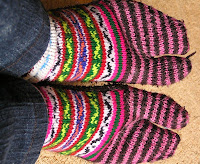Adult
illiteracy is not something that should be taken for granted, as
alarming
statistics reveal: More than two-thirds of the world's 793 million
illiterate adults (two-thirds of them women) are found in only eight
countries
and India is one of them.
Unfortunately,
statistics also show that illiteracy and poor economies go hand in hand.
The
state of Bihar—India’s poorest—has the lowest women’s literacy rate in
the
nation. Values are lower in rural areas than in urban ones. In Jammu
&
Kashmir (J&K), a largely agricultural state, only 41.82% of its
women are
literate.
Education
is the driving force behind strong economic and social development in
today’s
information society. India must then strive to eradicate adult
illiteracy all
together, focusing specifically on abolishing female illiteracy.
Why
should this be a specific major goal for the Indian authorities? As one
of the
founding members of the Women’s Literacy Project says, “In India, when
you
educate a man you are educating an individual, but when you educate a
woman,
you are educating an entire community.”
The
Women’s Literacy Project of Gulabgarh, a village in the district of
Paddar,
state of J&K was created in November, 2010 by Mr. Tashi Chering, to
eradicate female illiteracy in the area.
Thanks
to the generous contribution of concerned citizens from abroad, the
chairman of
the project, Mr. Tashi Chering, is able to rent a room, hire a teacher
and
purchase school supplies. So far there are about 25 female students
taking time
off their family and home to learn to read and write in Hindi and
English and
the number will hopefully increase.
Obviously,
part of the effort must be centered on raising the population’s
awareness regarding
women’s literacy. Literacy gives women self-confidence, thus increasing
their
participation in decision-making processes. It heightens social
consciousness and
increases the chances at success of the literate women’s daughters.
A
year after the project launch, awareness of the advantages of literacy
has
evidently grown. What is more, the students’ children are thrilled with
their
mothers’ desire for self-improvement and their increased self-esteem.
Simple,
but inspiring success stories speak for themselves:
Before
the project began, one of the students was helping out at her husband’s
shop.
Now that she is able to read, write and do basic arithmetic, she has set
up her
own small business. Still another woman told the project chairman how
delighted
she was now that she is able to read signs to guide her through the
hospital,
when visiting a sick family member.
Endeavors
such as the W.L.P. Gulabgarh lend support to government initiatives by
introducing personal, focused actions in remote rural districts. Women
who
learn collectively can begin working collectively towards becoming a
vital
force in the growing economic and technological power that is India.
Your
support can keep this project going. Please help the women of Gulabgarh
to
improve their role in society and put an end to gender-based
discrimination.
For more information contact Mr. Tashi Chering at lonpoadv@gmail.com or
visit
his webpage at http://www.lonpoadventures.com










